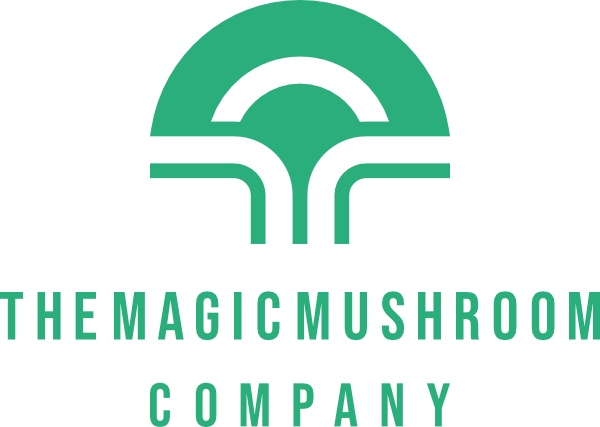For a pretty penny, anyone can get accredited to administer psychedelic drugs. These drugs are known to alter consciousness, but are they really as beneficial as traditional healers make them out to be?
Long before the legalization of shrooms in DC and Oregon, a captive audience had emerged for institutions teaching about the medicinal benefits of hallucinogens. This audience was comprised mainly of mental health professionals, as well as medical practitioners of all kinds.
Despite the unclear regulations, the vanguard industry is blossoming as institutions hope for the green light. Professionals are educating themselves about the potential therapeutic effects of psilocybin – the active ingredient found in mushrooms. Dozens of psychedelic institutions are not only teaching practitioners about psilocybin but about other drugs such as weed and MDMA as well.
Among the most prominent of the schools is the California Institute of Integral Studies, which is a certificate-course designed to teach about hallucinogen-assisted therapy. There are several of these psychedelic schools across the globe, and Naropa is another one. The Buddhist college, located in Colorado, offers a course focused on the healing benefits of MDMA in therapy.
Courses offer modules like Psychedelics and Social Justice, or Foundations in MDMA and Psilocybin Safety. Online and in-classroom courses vary in length but typically last a few weeks or months. The courses are pricey, costing hundreds or even thousands of dollars. This is because institutional companies have developed copyright programs based on their propriety.
In the opinion of Julie Holland (psychedelic author and psychiatrist) the industry has taken off in the same way that the cannabis industry did. While the “green rush” took place over a few decades, the “psychedelic rush” is happening in a matter of months. As a result, it seems that the billion-dollar mental health industry has been disrupted by optimistic investors. Compass Pathways Plc, a Peter Thiel-backed company, offers a psychedelic curriculum of core training. After the company’s trading launch in September, Compass’s stocks have risen by over 150 percent.
In light of the legal restrictions for American medical practitioners to administer hallucinogens other than weed and ketamine, the majority of courses are centered around psychedelic integration. Psychedelic integration is the process of preparing and supporting patients throughout the trip and afterward. Ingar Gorman (co-founder of the hallucinogenic school, Fluence) made a statement explaining that practitioners are not recommending hallucinogens, but instead they are backing up the decisions of their patients who may choose to experiment therapeutically with these drugs.
Gorman chose not to speak about the revenue of Fluence, although he mentioned that it rose sevenfold during 2020. The school streams and hosts virtual courses, which range in price from around $500 to $1250. Additionally, Fluence offers a $7500 certification course which includes a retreat in the Catskill Mountains. It is estimated that the institution has accepted and enrolled over 650 students so far. Of these, ten percent are professionals from all walks of life, while sixty percent of students are psychologists and social workers. Thirty percent of students are medical practitioners or therapists.
Gorman informs us of the vulnerable state that comes hand in hand with taking psychedelics, explaining that this is the reason practitioners are receiving training. One of the findings from scientific studies focused on hallucinogens is that practitioners should support the perspectives of the patient, rather than dishing out biased advice.
One of the most famous psychedelic schools is the MDMA Therapy Training Program. The center is located at the Multidisciplinary Association for Psychedelic Studies. After being founded in 2012, the course has accepted and enrolled more than 915 students. The program costs $7500 per person, and the school has recently raised millions of dollars in order to support the training of more MDMA psychotherapists in the future. In 2021 the school releases a 100-hour course that involves online retreats and virtual classwork (admissions open in February).
There is no one-size-fits-all method for hallucinogenic training. In fact, some practitioners have voiced concerns that a lack of regulation could make it tricky for students to select trustworthy institutions. There is always a risk of enrolling at the school of a self-appointed expert, whose main experience involves having taken more hallucinogens than most!
Jane Holland explains further, mentioning significant differences between courses. She notes that a lot of people are “reinventing the wheel” in their own styles, while simultaneously acknowledging that there are a number of innovative solutions emerging.
But the real question is whether it matters for practitioners to have experienced psychedelics for themselves. While the John Hopkins Psychedelic Research Unit and more institutions do not deem it necessary for scientists to have experienced hallucinogens, others like the Psychedelic Somatic Institute make it a requirement. Co-founder Saj Razvi claims it is essential for all aspiring healers to experience the non-rational for themselves. He believes it is mandatory for therapists to have a personal understanding of the psychedelic experience.
The Psychedelic Somatic Institute opened to the public in 2020, offering 5-day in-classroom programs. The courses took place in LA and Minneapolis and were followed up with eight months of virtual lessons, at a price of $6200. New or prospective students wishing to self-medicate with hallucinogens are typically prescribed ketamine. Alternatively, students might choose to use cannabis as part of the therapeutic process.


